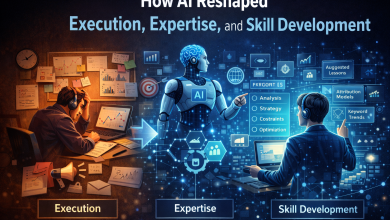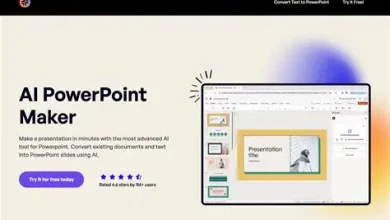
Artificial Intelligence (AI) is rapidly finding its way into global workplaces due to its ability to enhance productivity, automate processes, and enable smarter, faster decision-making. The marketing industry is no exception. AI is reshaping the way companies connect their brands to customers, with recent data showing that nearly 70 percent of marketers have integrated AI into their strategies. However, the integration of AI is far from seamless—an almost equal percentage report struggling with technical challenges during adoption. At a time when marketing budgets are tight and resources even tighter, AI holds the potential to modernize the discipline—yet realizing that potential requires strategic planning and thoughtful oversight.
How is AI changing the game?
One of AI’s core benefits is its ability to analyze massive volumes of data and extract actionable insights far more quickly than was previously possible. In marketing, this can be transformative—especially in personalization—by enabling marketers to deeply understand their target audiences and engage them with speed and precision. AI can support the creation of content that speaks directly to specific personas, tailored by region, tone, and even current events, to foster meaningful engagement and higher conversion rates.
AI empowers marketing teams to swiftly adapt content for different audiences, industries, and regions, breathing new life into high-value assets. For example, a single whitepaper can be transformed into a series of short-form, engaging assets tailored for various channels and buyer personas. With a strong messaging foundation in place, this transformation stays tightly aligned with brand voice and objectives. Not only does this expand reach, it also generates insights into which formats drive the most engagement, enabling teams to refine future strategies based on real performance data.
Increasingly, AI is streamlining the way marketing teams plan, manage, and execute content projects. From automating project kickoffs to managing timelines, approvals, and content curation, AI reduces the manual overhead that slows down production. It enables teams to orchestrate the entire content lifecycle more efficiently, freeing up time for strategic and creative work.
At the same time, creative teams are harnessing AI to generate distinctive imagery and design variations that might otherwise take hours or days to create. While human vision continues to guide the brand narrative, AI acts as a powerful co-creator, enhancing speed, exploration, and originality.
The importance of pragmatism
While the possibilities of AI can seem limitless, expecting seamless integration across every area of marketing is unrealistic. Organizations must first develop a strategic plan that aligns with broader business and marketing goals. A helpful first step is to form a dedicated “AI tiger team” to identify the functions where AI can deliver the most value. From there, the team can develop a phased roadmap, complete with realistic timelines and measurable objectives. ROI should be tracked through both qualitative feedback—such as marketing team surveys—and quantitative metrics like content performance, production efficiency, and engagement lift.
At the same time, the expanding use of AI brings challenges around data privacy and integrity. A recent study revealed that nearly one-third of companies have yet to formally acknowledge AI in their corporate strategies. As the technology becomes more embedded, it’s essential for teams to understand the risks of inputting confidential or proprietary information into public AI engines—risks that have already affected several large organizations. To mitigate these concerns, companies must offer comprehensive internal training that includes guidance on brand, tone, and proper usage. This ensures AI-generated content reflects the brand accurately and that employee usage remains compliant and secure.
Human connection still matters
It’s also critical to recognize that while AI can be a powerful enabler, it is not a silver bullet. The human-to-human element in marketing remains irreplaceable. For instance, while AI can assist in developing content, it cannot replicate the nuance, emotion, or storytelling that drives brand loyalty and cultural relevance. Successful marketing must be infused with personality and rooted in a company’s unique voice, values, and purpose. When thoughtfully integrated, AI can amplify human creativity, not replace it, enabling teams to move faster while staying connected to what matters most: the people they’re trying to reach.
Marketers of the future
In this new era of AI, the marketers who thrive will be those who embrace these tools as enablers—not replacements. Companies must begin with a clear AI vision that aligns with business objectives, then build structured roadmaps that cover content planning, applications, training, and measurement. Once the foundation is in place, teams can scale AI’s impact across programs—unlocking new levels of efficiency, relevance, and results.
As AI continues to evolve rapidly, staying informed on developments and the policies that govern its ethical use will be key to maintaining innovation and competitive edge. Those who embrace AI with curiosity, discipline, and pragmatism will be best positioned to lead the marketing transformation now underway.





